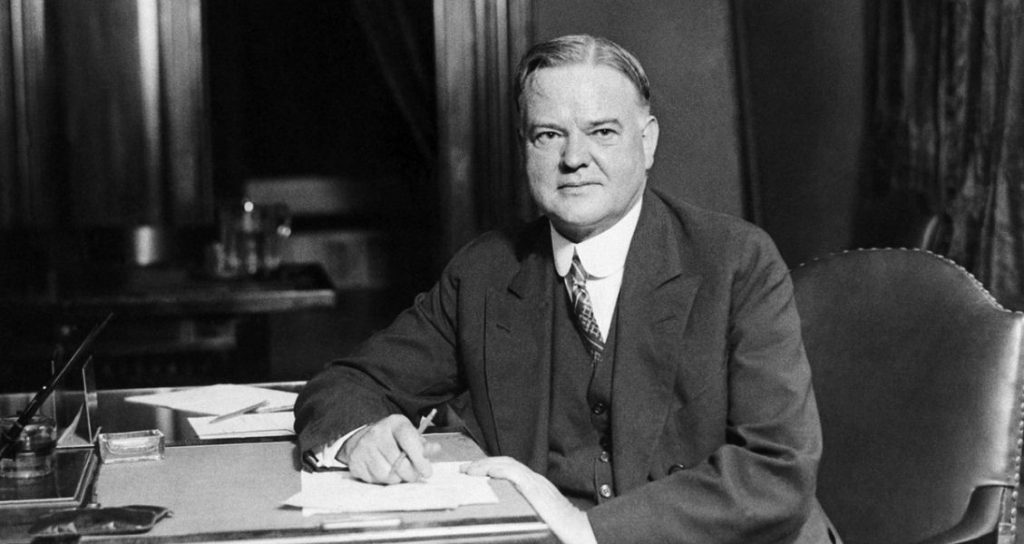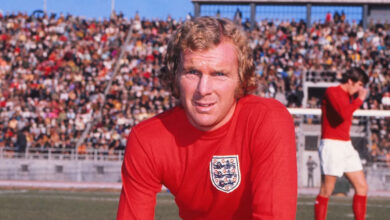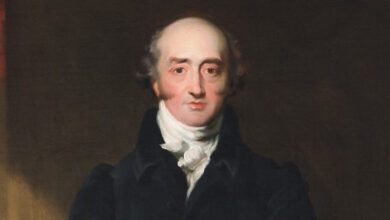
Podcast: Play in new window | Download
Subscribe: Spotify | Amazon Music | Youtube Music | RSS
Some individuals seem to have a knack for just getting missed by history despite their significant importance to it. One such individual often overlooked and forgotten by the history books is Herbert Clark Hoover who, although little remembered outside of the historical community, had a huge impact both domestically and abroad.
Herbert Hoover was born 10 August 1874 in West Branch, Iowa. While he was still young, his family moved to Oregon and after a fairly typical childhood, he graduated from George Fox University and Stanford University. Herbert Hoover had several jobs in his life before the one that would make him most famous; having worked as a businessman, an engineer and a politician, Herbert Hoover would eventually rise to become the 31st president of the United States.
Prior to his ascension to the White House, Herbert Hoover was tapped to become the senior manager of the Commission for Relief in Belgium. The Commission for Relief in Belgium was founded after World War I as an international agency dedicated to helping provide food supplies and other important equipment to the occupied people of Belgium during World War I. It was partly because of his excellent work in this position that he was later appointed by President Woodrow Wilson to head the Food Administration.
His work with food was not yet over though as Herbert Hoover also led the American Relief Administration which was dedicated to helping bring relief supplies, food, and other aid to Central and Eastern Europeans after the war.
It was his outstanding humanitarianism and a long history of helping to serve others that made Herbert Hoover a powerful political force in his day and although he was not successful in getting the Republican nomination in the presidential election of 1920, he did get himself appointed as the Secretary of Commerce working under President Warren G. Harding as well as Calvin Coolidge. He even gained the title of Secretary of Commerce and Undersecretary of all other departments due to his incredible energy and active participation in every realm of the executive branch.
His humanitarianism during the Great Mississippi flood of 1927 continued to build his public persona and the dividends paid off as he was elected the Republican Party’s nominee in 1928 and he would go on to defeat the rival Democratic candidate Al Smith. The future seemed bright for Herbert Hoover, however, there was a problem brewing on the horizon that few saw coming and that was the collapse of the American, and world, economies triggering what is known as the Great Depression.
Although the collapse happened shortly after his ascension to the presidency, his name became irreconcilably linked to the issue. Hoover utilized a variety of public policies, executive authority, and his own political persuasiveness to help float the economy and keep it from sinking. He did not believe that the federal government had a duty to meddle directly in the affairs of the relief effort, fearing that individuals might become dependent on the government for their needs and lose their own autonomy.
He did begin many of the great works projects that were continued by his successor including the building of Hoover Dam, originally known as Boulder Dam, which was at the time the largest single dam in the world. Despite his attempts at public works projects and his political attempts to assist the economy in recovery, rightly or wrongly, Herbert Hoover was blamed for the crisis or at least a poor response to it and he was soundly defeated by the Democratic nominee for President, Franklin Delano Roosevelt, in the 1932 presidential election.
Despite his immense unpopularity, upon leaving office his reputation did recover with time and he enjoyed a long and prosperous retirement after his departure from the White House. He even continued to work in government helping to assist presidents Harry Truman and Dwight Eisenhower in various roles including as the chairman of the Hoover Commission.
Even though he had a strong humanitarian bent and his work across multiple presidential administrations was extensive, not to mention his assistance in helping feed individuals at home and abroad, Herbert Hoover has never gained a huge amount of historical traction and continues to be considered a mid-ranked president. However, his reputation has recovered a bit in the historical community as many now recognize that Herbert Hoover was not responsible for the issues leading up to the Great Depression and indeed attempted within the scope of his perceived authority to rectify the situation and even helped start some of the great works programs in the United States that would forever change the nation. His ability to be a bipartisan team player is also something that many historians sorely miss and wish could make a comeback in our political sphere today. Herbert Hoover died on 20 October 1964 in New York City at the ripe old age of 90, only the second-ever US President to reach such an age.
Podcast: Play in new window | Download
Subscribe: Spotify | Amazon Music | Youtube Music | RSS




